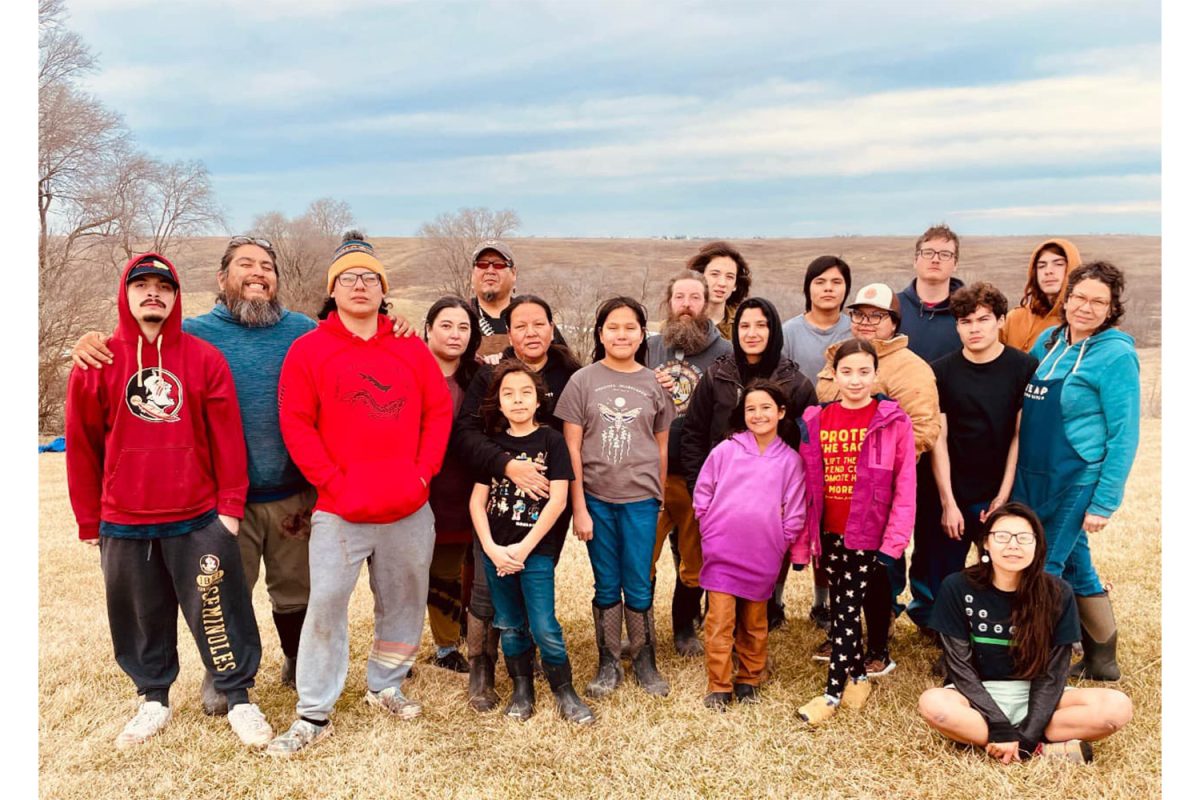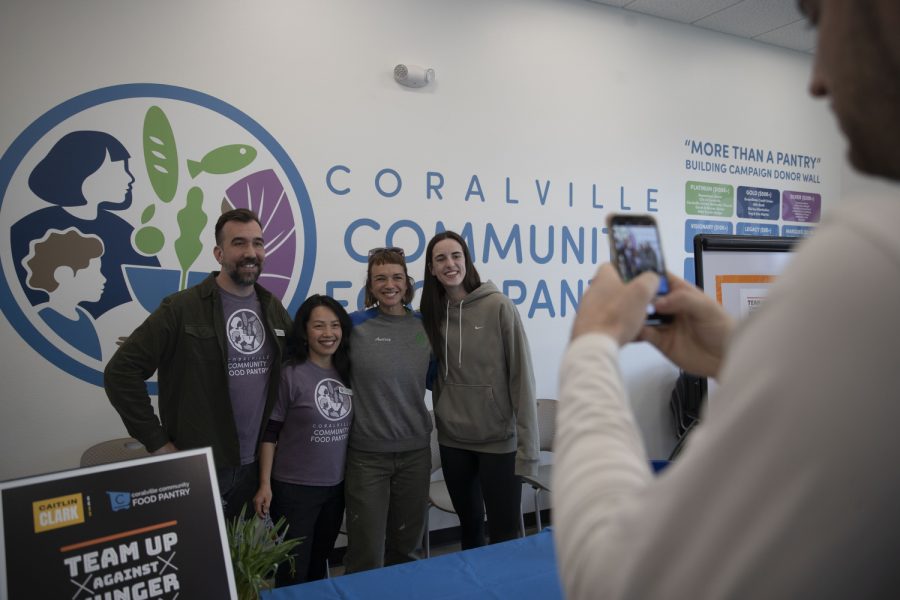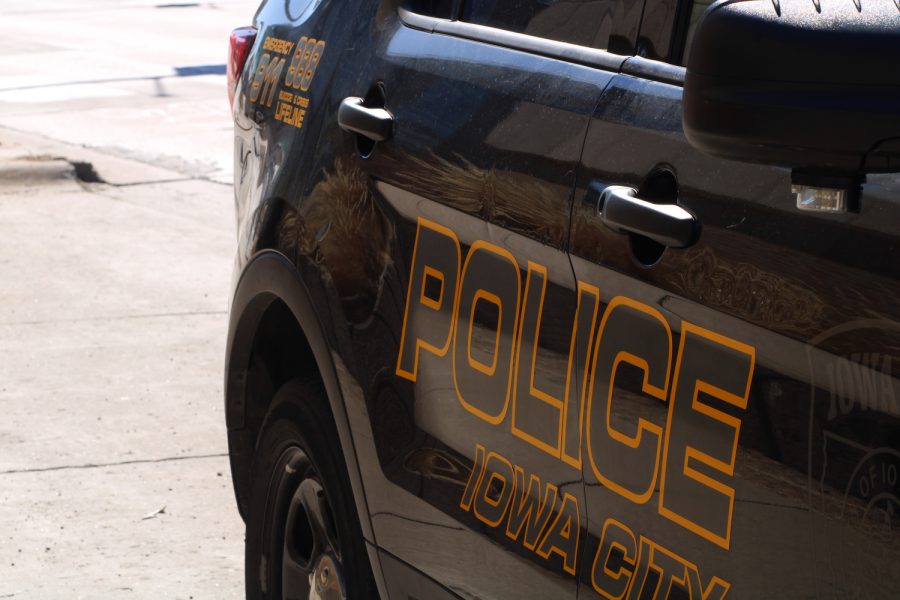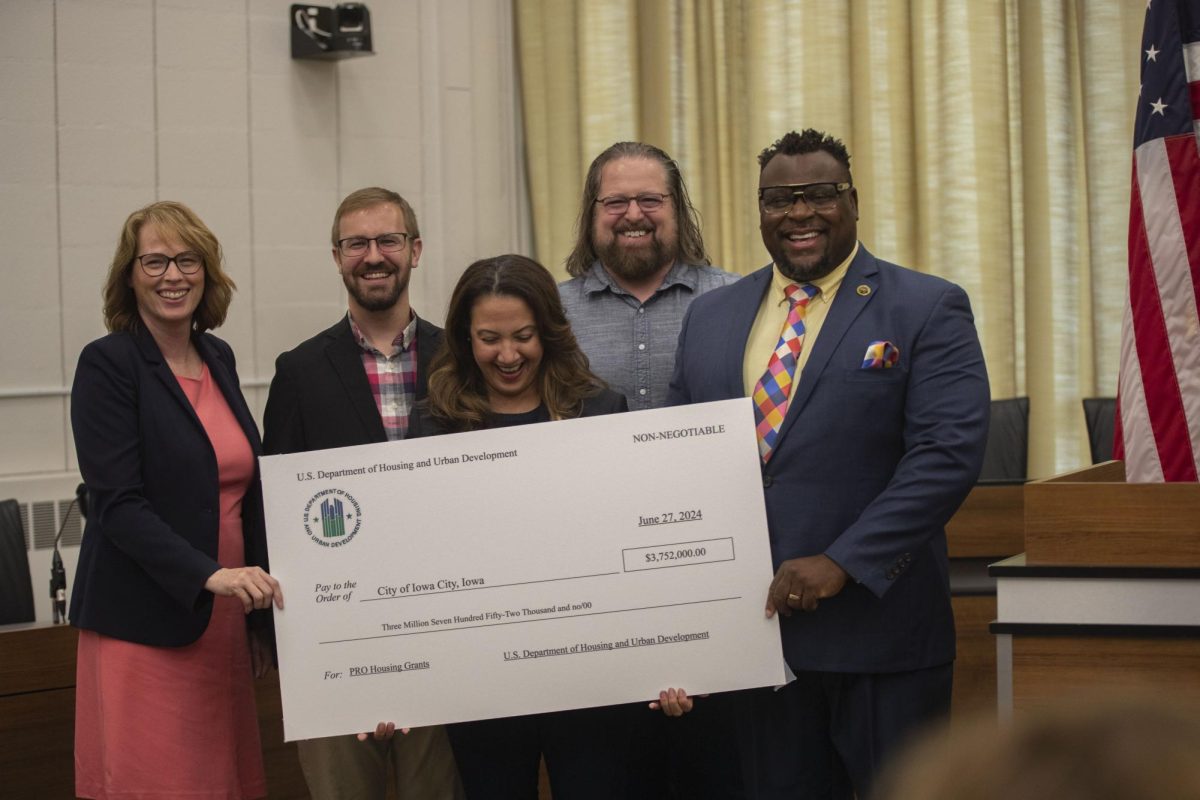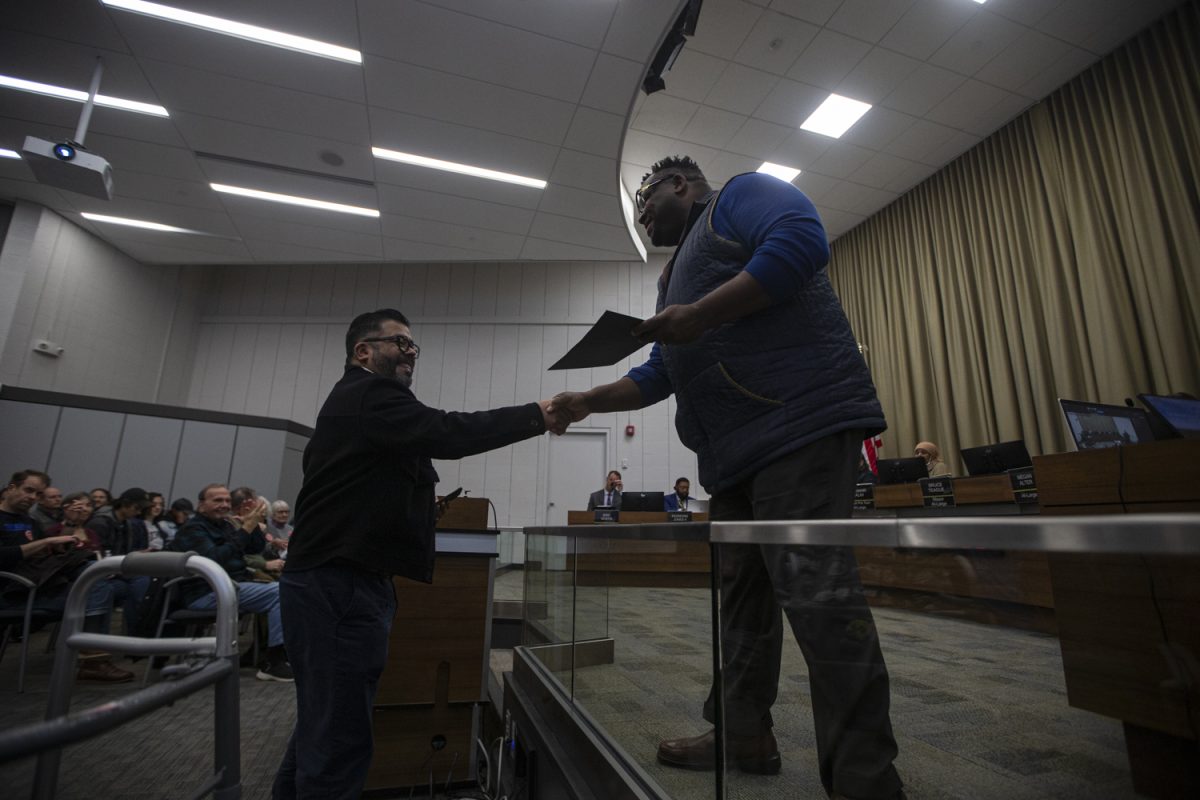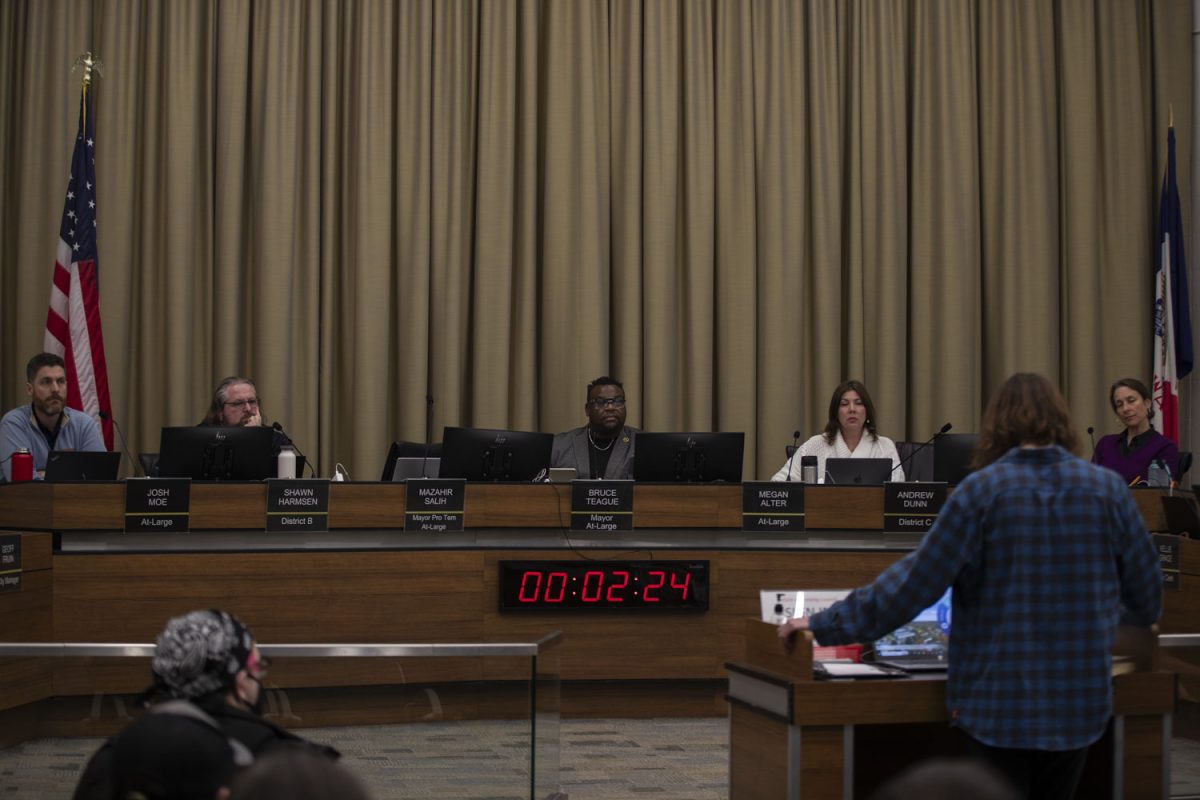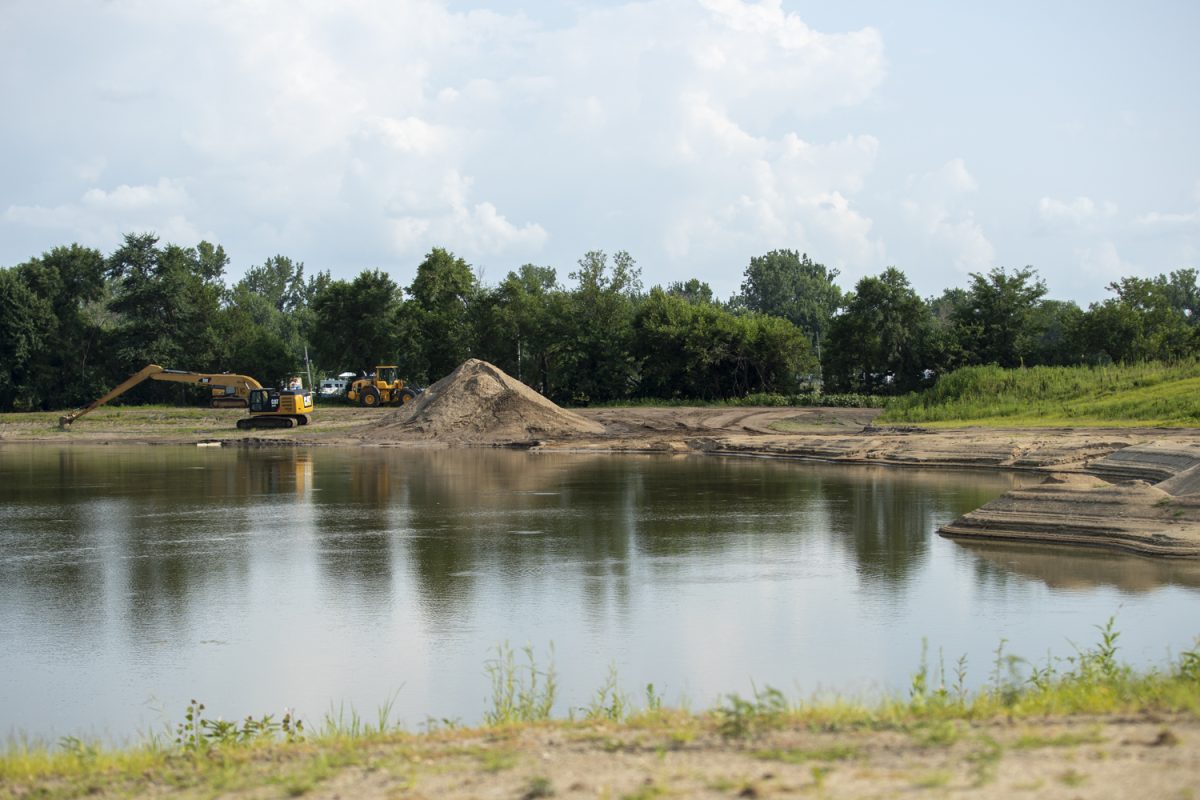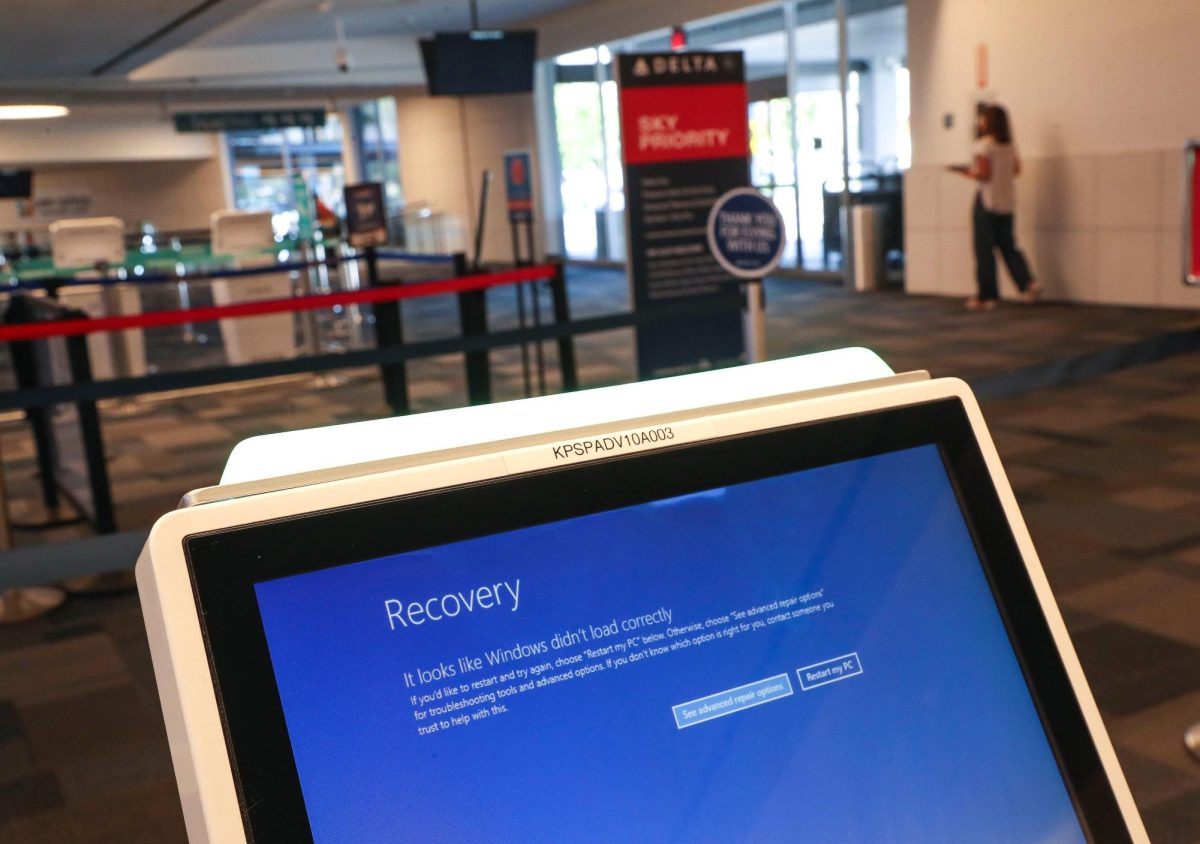A lifelong passion for justice fuels Iowa City resident Sikowis Nobiss, who is Plains Cree/Saulteaux and a member of the George Gordon First Nation in Saskatchewan.
“I feel like my ancestors put something in me where I have always been somebody that feels very strongly about social and environmental justice,” Nobiss, founder of the Great Plains Action Society, said.
Nobiss moved to Iowa City for graduate school and recognized a need in the community for Indigenous spaces and representation.
“After I graduated I felt lonely,” Nobiss said. “I knew that we needed a voice for Native people here.”
Nobiss found her footing as a local activist during the fight against the Dakota Access Pipeline in 2016, challenging the construction of an oil pipeline that threatened water resources and sacred tribal sites throughout the Dakotas and Iowa.
Protests of the pipeline eventually concentrated at the Standing Rock Sioux Reservation in North Dakota. Nobiss brought an Indigenous perspective to the forefront of the fight in Iowa, bridging the gap with rural landowners who also opposed the pipeline.
“I decided that we needed more resistance in Iowa,” Nobiss said.
She established Little Creek Camp, a traditional healing space and action center for water protectors. The camp evolved into the Great Plains Action Society in 2017, an Indigenous-run nonprofit that works to amplify and empower Indigenous voices in Iowa.
The Great Plains Action Society’s mission goes beyond efforts for education and acknowledgment of historical trauma. The organization actively works to empower Indigenous communities by reclaiming traditional practices and connection to the land and its creatures, a facet of what Nobiss calls “reMatriation.”
Putting their vision into practice, the Great Plains Action Society partnered with Water Panther Consulting and the Intertribal Buffalo Council in February to hold their first buffalo harvest initiative.
Working with three buffalo gifted by the Nature Conservancy at Dunn Ranch in Hatfield, Missouri, the primary focus of the harvest was to educate Native youth on traditional harvesting methods and emphasize community building and healing through hands-on learning.
The buffalo harvest, Nobiss said, was also a display of Indigenous resilience in action.
“We’re trying to bring resources and skills back to Indigenous people, and that’s what the buffalo harvest was about,” Nobiss said. “It’s about building community and bringing that power back to us. It’s all part of the idea of Rematriation.”
Prioritizing the needs of urban Indigenous communities, the harvested meat and bones were primarily distributed in Sioux City, Iowa’s largest urban Native population center. A smaller portion returned to community members in Iowa City.
“Seventy percent of us don’t live on the reservation anymore, so there needs to be more for us outside of that,” Nobiss said. “That’s where we’re trying to fill in the gaps.”
The organization has been a lifeline for Indigenous people facing racism, said Marie Krebs, managing director for the Great Plains Action Society.
Before the founding of the Great Plains Action Society, she said, her voice as an Indigenous parent was ignored when she raised concerns about her son being placed in a Redzone youth football team in Coralville called “The Redskins.” The team’s name changed in 2022 following the rebranding of the NFL’s Washington Redskins, but Krebs said it was not driven by a moral imperative.
“With Sikowis and Great Plains Action Society, we’re louder now, and they can’t brush us off so easily,” Nobiss said.
While the Great Plains Action Society empowers local Indigenous communities, Nobiss’ dedication to social justice extends to citywide initiatives.
As a commissioner, she secured the inclusion of Native partners on the Ad Hoc Truth and Reconciliation Commission, allowing the addition of traditional healing circles to its meetings.
Her commitment and the visibility of the Great Plains Action Society also led to the Iowa City Human Rights Commission’s adoption of a formal land acknowledgment in 2021 which is read at the start of each meeting.
“They’ve been a great resource to us,” Doug Kollasch, the chair of the Human Rights Commission, said. “If you were to ask me to name a couple nonprofit organizations in Iowa City that have a tremendous impact, they’d be at the top of the list.”
The Great Plains Action Society also organized the first local celebration of Indigenous Peoples’ Day — celebrated annually across the country on the second Monday in October — and hosts an annual event in November called Truthsgiving.
Krebs highlighted the importance of this event for the Indigenous community to celebrate on its own terms as well as to dispel the misconception that Native people are a relic of the past.
“We talk about the truth about Thanksgiving and share Indigenous culture and voices,” Krebs said.




